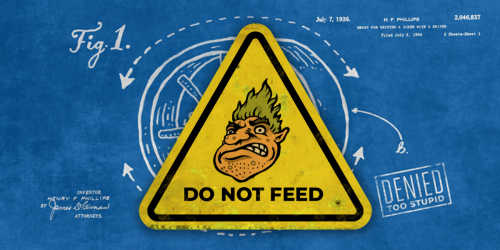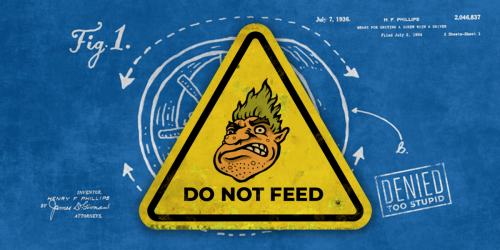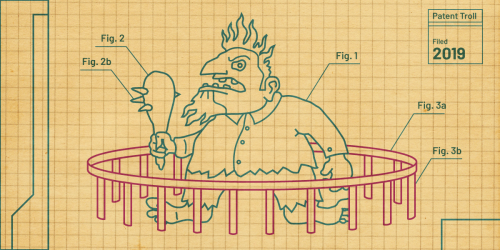Yesterday, a new patent reform bill passed out of subcommittee in the House. The bill, called the Targeting Rogue and Opaque Letters Act, or TROL Act, deals with the problem of misleading patent demand letters. While we are pleased that Congress is still taking an interest in patent trolls, this particular bill would achieve very little and is no substitute for real reform.
Deceptive demand letters are a significant problem. In one case, a secretive troll called MPHJ sent over 16,000 letters to small businesses demanding payment for using basic "scan to email" technology. To hide who was really behind this campaign, MPHJ set up a dizzying array of shell companies. Another troll, Innovatio IP Ventures, sent over 10,000 letters to businesses like cafes and hotels demanding payment for providing Wi-Fi. In an appalling display of unethical greed, Innovatio targeted millions of devices that were already protected by patent licenses.
Every one of these thousands of deceptive letters wastes time and money as small businesses evaluate the risk, so we are glad that Congress wants to respond. But the TROL Act is not the right approach. As currently drafted, the act would make it explicit that certain kinds of misrepresentations are unfair business practices under section 5 of the Federal Trade Commission (FTC) Act. But the FTC already has authority to target deceptive patent trolls. Indeed, it is currently investigating MPHJ. Worse, the TROL Act expressly preempts a number of recent state laws regarding demand letters (this means the federal law replaces the state laws and renders them a nullity). We see little value in striking down over a dozen state laws only to give the FTC authority it likely already has.
Many of the strongest opponents of patent reform are supporting the TROL Act. We suspect this is not because they care about the bill itself. Rather, they are hoping that this bill will provide political cover—an illusion of action—that they can use to frustrate broader reform.
The TROL Act will address only a small subset of the significant problems with today’s patent laws. We can’t really blame the committee for proposing a narrow bill. The limited reach of the TROL Act is at least partly explained by the fact that it is coming out of the House Energy and Commerce Committee. That committee does not have jurisdiction over broader patent law issues (which fall under the aegis of the Judiciary Committee). Given its limited scope, it is extremely important that the TROL Act does not become a substitute for change. We need broad reform that deals with patent quality and litigation abuse.
The TROL Act is not the patent reform you are looking for.








